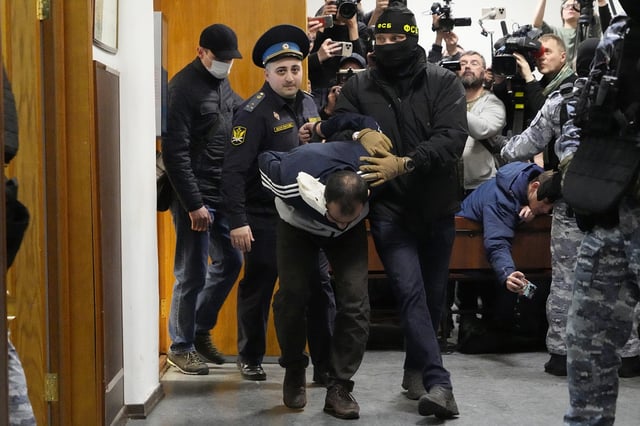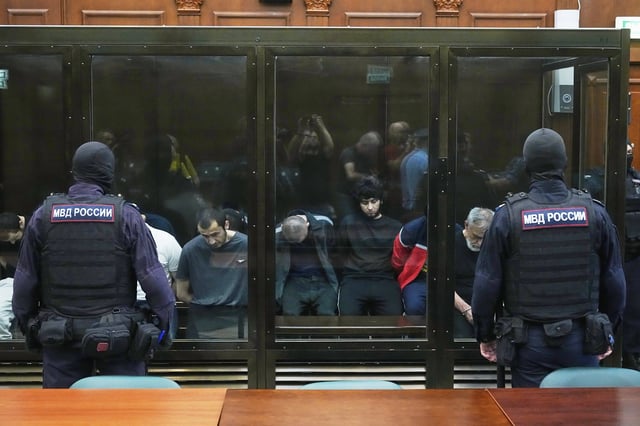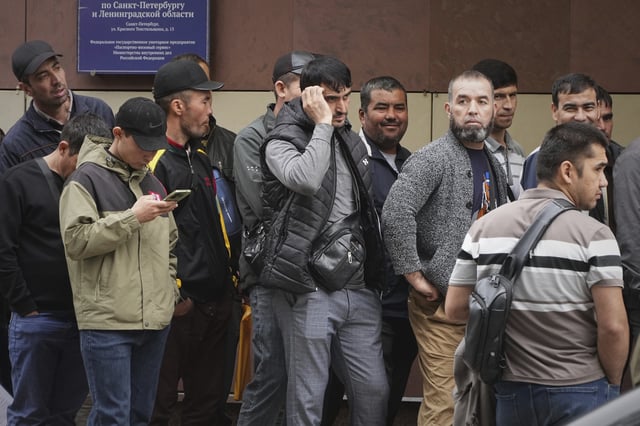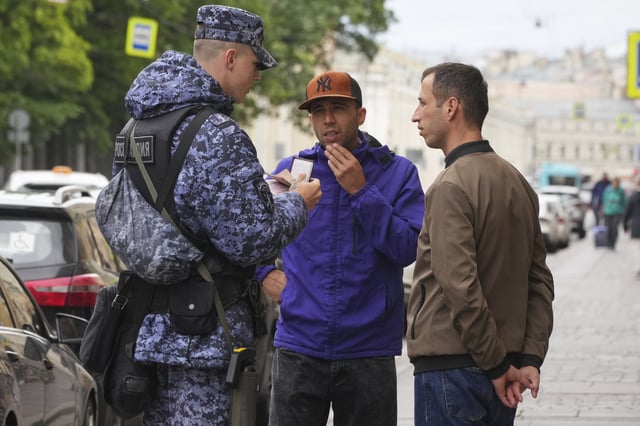Overview
- Four Tajik nationals are on trial behind closed doors over the March 2024 Crocus City Hall massacre that killed at least 145 people, after their rapid arrests and reports they appeared in court with signs of severe beatings.
- Rights groups and lawyers report ethnic profiling, mass document checks and degrading treatment, with Memorial citing roughly 86,000 detentions and expulsions over six months in 2024, including a sharp rise in Tajik deportations.
- Thirteen regions have barred immigrants from jobs such as hospitality, catering, finance and taxi driving, and the Moscow region launches a tracking app in September for visa‑free entrants with penalties for noncompliance including service restrictions.
- A new nationwide rule limits school access for immigrant children unless they prove Russian proficiency, and officials said only 19% of applicants were able to take the language test in the first weeks due largely to paperwork problems.
- Police raids on workplaces and mosques and reports of coerced enlistment persist even as Russia faces a labor shortfall, while remittance‑dependent Tajikistan risks economic strain, with the World Bank projecting slower growth in 2025.



